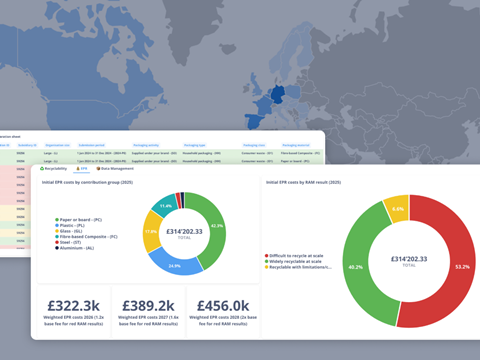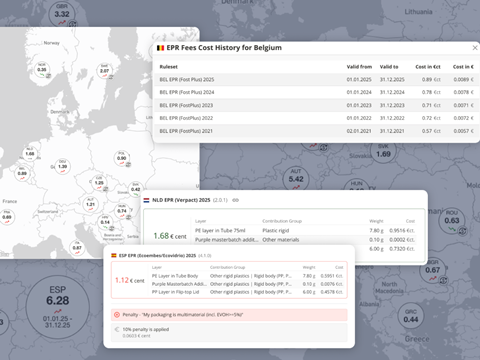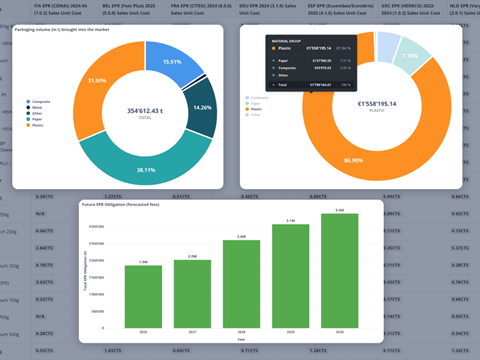In this edition of the Spotlight, Recyda explains how its software for packaging sustainability and compliance helps companies streamline Extended Producer Responsibility (EPR) reporting, avoiding penalties and preparing for evolving changes.

Extended Producer Responsibility (EPR) has been a fixture of the European packaging landscape for more than twenty years. For many companies, the declaration process is a familiar - though often complex and time-consuming - routine.
Recyda helps streamline this process - but how exactly, and why should it be on your radar?
Given that EPR has been in place for over two decades, is it time for companies to fundamentally rethink their approach?
Yes, now more than ever! Simply, because the way EPR works today is nothing like it was 20 years ago. It’s not only that more countries have introduced EPR systems, the rules themselves are getting far more detailed and differ significantly from one country to the next.
EPR regulations are evolving in two fundamental ways:
Expansion: The EPR map is being redrawn. Key markets like the United Kingdom are launching their comprehensive EPR schemes, while nations like Denmark are introducing their own frameworks, adding new, distinct sets of rules to the compliance puzzle.
Deepening complexity: Simultaneously, established EPR frontrunners are not standing still. Countries like France and the Netherlands are moving far beyond simple weight-based declarations. They now refine their methodologies annually, introducing highly granular eco-modulation criteria that tie fees to factors such as recyclability, recycled content, material types, and even specific details like colour.
What was once a task of declaring tonnes placed on the market has evolved into a complex data challenge.
The age of managing this intricate, fast-moving regulatory environment with spreadsheets and manual processes is over. The risk of error, the drain on resources, and the financial penalties for non-compliance are simply too high. It’s time for a digital transformation!
How Recyda is helping companies streamline their EPR reporting and declaration
Recyda continues to drive sustainable change across the packaging space. It does this by enabling companies to 1) unify packaging data, 2) calculate and report EPR, and then 3) use this portfolio-wide analysis to identify areas for improving recyclability and reducing EPR costs.
“Driving sustainability starts with getting EPR right. For brands, accurate EPR reporting is a critical first step - but it’s no small feat, especially with large packaging portfolios and evolving regulations,” says Vivian Loftin, co-founder and CMO at Recyda.
“Our focus has been to move companies forward in their sustainability journey by providing a platform that transforms how they manage EPR: improving not only their packaging data’s depth but also adapting for future reporting in this rapidly evolving landscape.”

To meet today’s demanding reporting and declaration requirements, Recyda bridges the gap between your company’s data and a country’s complex declaration rules. Our in-house team of data experts translates complex legislation into the specific attributes needed for full compliance.
It helps companies skip the manual processes - enabling them to calculate, forecast and report EPR accurately.
This ensures that not only time is saved, but more importantly, EPR declaration is done right!
Moreover, we view EPR compliance as a journey. Recyda’s software empowers organisations to move along this path, from reactive compliance to a stage where they are in full control - not only reporting accurately, but proactively taking steps to reduce their EPR fees.

As the rules of EPR continue to evolve, staying informed is the first step towards confident compliance. To deepen your understanding of the latest changes, explore our expert webinar series on the newest EPR schemes.
When you’re ready to see how automation can transform your organisation’s reporting process, get in touch with our experts to redefine how you manage compliance, save time, and reduce costs.
This content was sponsored by Recyda.









